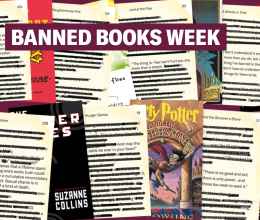BATAVIA, OH- The American Civil Liberties Union of Ohio sent a letter today to Mary Lynne Birck of the Clermont County Prosecutor’s Office urging investigators to respect the First Amendment rights of students who wrote letters to their local paper regarding a new school tax levy under consideration. The Prosecutor’s Office indicated they planned on investigating whether the students were forced to write the letters and if any other laws were violated.
ACLU of Ohio Legal Director Jeffrey Gamso said, “Students have a right, like any other people in America, to voice their opinions on issues that are important to them. Similarly, teachers must be free to present diverse, academically rigorous material to their students without fear of reprisal from officials. It is imperative that the Prosecutor’s Office uphold those rights.”
“Simply by conducting this inquiry, the Prosecutor’s Office places the students’ free speech rights in jeopardy. The message they have conveyed is that if young people express their opinions, they could be the subject of a police investigation. In the future, it is very likely teachers may think twice before giving similar assignments and students may feel uncomfortable expressing their views,” Gamso added.
According to news reports, the students were enrolled in an English class and had an assignment on persuasive writing that required them to author a letter on a subject that was important to them. Students were allowed to argue either side of the issue or present both sides. Many of the students chose to write about the upcoming vote on a levy for their school, though some students wrote on other issues.
After the letters were completed, the teacher allowed the students to submit them to the local newspaper for publication. After the newspaper received the letters, it asked the Prosecutor’s Office if the letters violated a state law forbidding schools from using funds to promote or oppose a school levy. The Prosecutor’s Office then announced it would investigate whether there was any wrongdoing by the school.
Gamso concluded, “Local leaders should be celebrating the fact that so many young people care about important political issues like school funding. Instead of conducting investigations, they should be partnering with local educators to expand critical thinking exercises like this assignment that will better engage young people in civics and prepare them for the future.”







